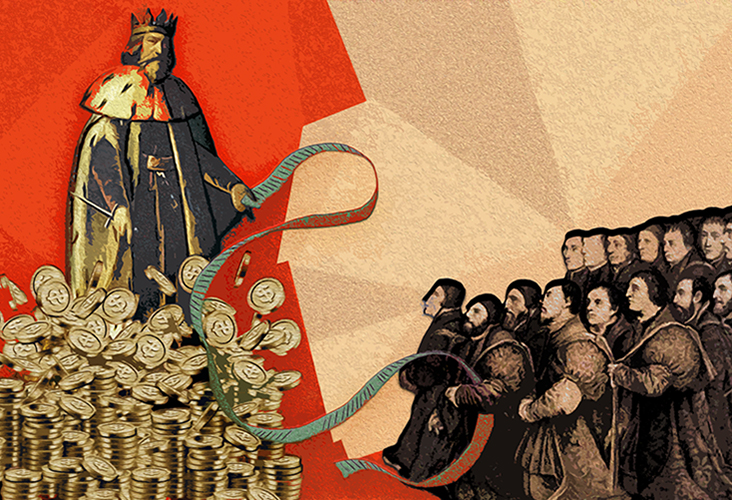Applying for a mortgage is an intimidating process. But it’s a lot easier if you know how the process works. Interested in how does a mortgage work? Well, here we go!
Discovering how a mortgage works and what you need to do to get one is part of one of the most significant financial commitments a person makes in their lifetime. This happens whenever a person buys a house, condo, commercial building, or land.
No matter how experienced you are the process of buying property and applying for a mortgage is one of the great challenges a person can face.
This is a very adult process that involves lots of papers, requests for verification of all your income sources, as well as details about expenses, credit, personal histories, and your liabilities.
There are people in the mortgage process who take a role in determining the details of your loan. They are real estate agents, appraisers, title company representatives, mortgage lenders, home insurance agents, and mortgage servicers.
But there’s more. Mortgage lenders, loan originators, processors, underwriters, closers, and even post-closers can all be involved in processing your loan. Each has specific responsibilities. If they see holes in your work history or have any pertinent financial questions, they will ask for more information.
The origin, story and how does a mortgage work in the success of homebuyers

As a first-time home buyer, you may not appreciate all the details and history of this important financial transaction. Mortgages were initially only granted by the king to other nobles. That change happened around 1066 AD. But by the time of the Industrial Revolution (around the mid-1800s), local banks began making home and property loans to qualified non-royal, average citizen borrowers or others who wanted to be landlords.
Since then, the real estate purchase process has evolved dramatically. An entire set of real estate laws were developed, accompanied by changes in civic taxation, registration, land use codes, and, significantly, financing. All this has made it much easier for people to apply for a mortgage since it is a more standardized process.
As we discussed in an earlier post, all this means that buying a house requires extensive financial documentation.
Here is what to expect when applying for a mortgage:
- When you start the buying process, your lender will begin to examine your financial situation in detail.
- The lender will conduct its own in-house due diligence test to determine your current and future financial situation. It will determine the house you can afford.
- This process involves a financial analysis of your specific situation to determine if you can meet down payment, closing, utilities, taxes, closing, and other required expenses before the mortgage closing will occur.
- Finally, if you pass this financial test, exchange checks, and pay the required fees at closing, you get the keys to your new house.
This has been an overview of the mortgage process. However, everyone buying a house should know the most essential details about how a mortgage works.
Who’s involved in the process when applying for a mortgage?
Of the people listed above, the most critical person is one who you will probably never meet. This is the underwriter.
An underwriter is a financial expert who examines your credit, income, assets, and debt to determine the all-important question: can afford the mortgage?
The underwriter signs off on your mortgage application and makes the critical decision about whether you receive the loan. Their primary job is to protect the lender from default, but they also have your interests in mind since they do not want to see the property go into foreclosure.
Good cop, Bad cop and how does a mortgage work when determining your financial capacity
The vast majority of applicants never speak or meet the underwriter. Any questions the underwriter has about your application are passed to your loan officer when you apply for a mortgage. An important topic to understand about how does a mortgage work is that the loan officer is your point of contact who will request more information or financial documentation.
In some cases, this makes the relationship between the loan officer and the underwriter resemble the “good cop, bad cop” team. The loan officer is your friendly point of contact, and the underwriter is stress testing your financial data to make sure you can pay the loan over the entire loan period and still have enough disposable income to live.
The loan officer also informs you if your loan was approved. Or if you were denied the loan. If this happens, they will suggest the following steps so you can obtain a mortgage.
Documents Needed in the Mortgage Application Process
Although we live in a society that tries to minimize paperwork, you will see a lot of paper in the mortgage application and approval process. Most lenders and title companies use electronic signatures to approve and expedite the signature process. But, since this is a complex legal document, many of the papers in the mortgage still require signatures at critical sections to show you have been presented and understand key information.
It’s also important to note that each state and county has its own legal and title recording requirements. As a result, there are no single standard mortgage applications and processes nationwide. It also means that fees and expenses differ from state to state.
The paperwork itself contains the following key documents:
The Mortgage Note
The Mortgage Note contains the borrower’s promise to pay the lender. It specifies the loan amount, interest rate, time and place of payments, borrower’s right to repay, loan charges, and what happens when the borrowers miss a required payment. This document also states the obligations of the borrower, and how notice will be made in the event of a missed payment or default.
The Mortgage

The Mortgage document goes into greater detail than the Note. It contains the legal description of the property, details about escrow payment, insurance requirements, liabilities, responsibilities of the borrower, and uniform covenants. Covenants are legal terms that accompany the sale and purchase of the property. In the mortgage, the borrower agrees they will defend the lender against any claims that the property title is invalid.
It also has a survey of the property that accompanies the deed. If this is a rental property, it will also have a section on the assignment of rents.
The Uniform Residential Loan Application
The Application includes all the property and loan details, information about the borrower, including their employment, monthly incomes, and housing expenses, assets, and liabilities. This is presented to everyone applying for a mortgage. The Closing Disclosure contains the loan terms, projected payments, costs needed at closing, and other costs. This document also includes the most significant number: the cash needed to close.
The cash required at closing is where many deals fall apart and an important topic that will determine how does the mortgage work. The Application lists the down payment, as well as any credits due to the seller for taxes. It also includes the real estate commission, which the seller pays.
Other papers in this package include an initial escrow account disclosure statement. The escrow accumulates money for property taxes and hazard insurance.
How does a mortgage work? Requirements and what to expect when applying
- Application: Like many things in life, the mortgage process begins with an application. The Application will ask for basic personal information, as well as statements and proof about your finances, including assets and liabilities. Be Ready to provide more documentation throughout the process.
- Home inspection: While many first-time buyers may think this is unnecessary, it protects both the buyer and the lender. Inspections can uncover expensive to fix repairs, structural or insect damage, or impending appliance failures. It will also show the positives about the property. If the buyer discovers a defect, he or she can negotiate the repair costs. Inspection costs vary nationwide, but estimates of $400 are standard for a 200-square-foot home.
- Property insurance: Buying insurance is an essential part of the process. Buyers should consider what hazards the policy excludes (floods, hurricanes, etc.), liability limits, the property’s cash value, and replacement costs.
- Curtail your purchases: After applying for a mortgage and the process begins, borrowers should refrain from making any new, large purchases that could increase credit card balances or impact credit scores. This is because underwriters look at the all-important debt-to-income ratio that could go south when you make large purchases.
- Review the closing documents: When you receive them, read them. Find out how much you will pay at closing. You must provide these funds via a cashier’s check or wire transfer. If you make an overpayment, it will be refunded. It is better to send more money than less to the closing.
- Singing the papers: At the closing, you will sign papers (unless this was done beforehand electronically), exchange keys, and go over any final details. After you leave the closing, the house is yours.
Tax Benefits of Home Ownership and What to Consider When Applying for a Mortgage
Now that you own the house, you will get tax benefits both annually and when you sell the property. Among these are deductions for the mortgage interest and property tax payments.
The most popular deduction is on the interest paid on up to $750,000 of mortgage debt for individual taxpayers or a married couple filing a joint return.
For married couples filing separately, the limit is $375,000. If you bought a home on or before Dec. 15, 2017, the mortgage interest deduction is capped at $1 million for single filers and married couples filing jointly. This deduction is $500,000 for married couples filing separately.
According to the Tax Policy Center, homeowners may exclude capital gains up to $250,000 ($500,000 for joint filers) following specific criteria. This deduction applies if the owners used the home as their principal residence in two out of the preceding five years and if they did not claim the capital gains exclusion for the sale of another home during the previous two years.
Deductions benefit people in higher tax brackets more than people in lower brackets, but savings are available to all homeowners.
How does a mortgage work for more deductions
In addition to the standard mortgage interest deduction, homeowners are eligible for a mortgage insurance deduction, a mortgage points deduction, a SALT deduction, residential energy credits, and a home office deduction.
While searching for a home, applying for a mortgage, and buying a home is challenging, it pays to know how a mortgage works. It may be a tedious process, but the result is that you own your own property. And that is a great reward.
–Chuck Epstein


